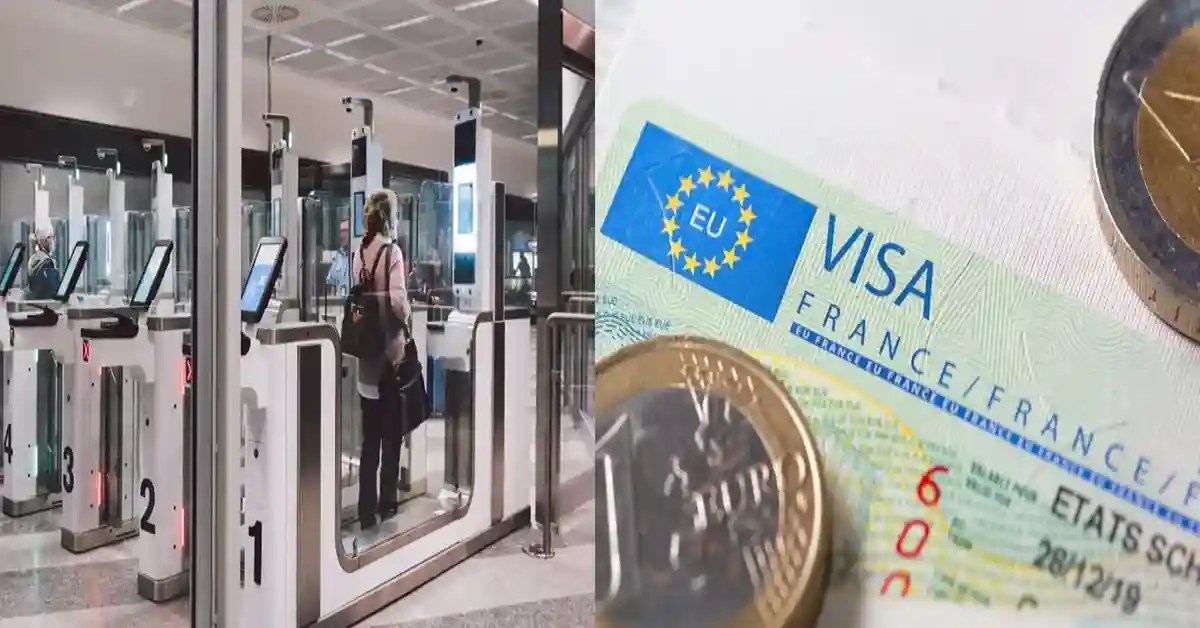France confirmed that the EU’s new Entry/Exit System (EES) does not apply to non-EU nationals holding long-term visas. It is still unknown, though, which queue they will get in during border inspections. Launched on November 10, 2024, the EES intends to improve security and modernize border administration, however, it may cause longer lines at ports.
According to France’s Ports of Normandy Director, Jerome Chauvet, non-EU nationals with valid long-stay visas will be free from the EU’s impending Entry/Exit System (EES) border controls. Thanks to this exemption, these visitors will not need to register with the EES to enter France.
Check Also: Netherlands Work Visa Sponsorship Available for Foreign Workers in 2024
Holders of Long-Term Visas Differed:
Chauvet explained that a substantial portion of visitors will be free from the EES: under the new system, those with long-stay visas won’t have to go through the pre-registration process.
Chauvet emphasized that individuals holding long-stay visas are not subject to the soon-to-be-implemented EES regulations, saying, “EES won’t be applied to them.”
EES: Who Needs to Register and Who Is Exempt?
All non-EU nationals entering the EU for short periods including those who require a Schengen visa are required to register with the Entry/Exit System (EES). Non-EU citizens with long-stay visas are exempt as they can stay in the EU for lengthy periods with appropriate permits.
Required for EES Registration:
- All non-EU citizens visiting the EU for a short period.
- Tourists require a Schengen visa.
Those lacking long-term visas, regardless of visa criteria.
Exempt from the EES Registration:
- Non-EU citizens have extended-stay visas.
- Individuals who have specific permits to stay in the EU for a lengthy period.
Uncertainty About Queue Placement:
While long-stay visa holders are excluded from the EES, the subject of which queue to join at border crossings remains unresolved. Chauvet suggested that they join the non-EU queue, where they will wait with other foreigners who need to register.
Longer Queues are Expected with EES:
Jerome Chauvet cautioned that once the Entry/Exit System (EES) goes into place, waits at French ports may become lengthier. Normandy Ports, which include Cherbourg, Caen-Ouistreham, and Dieppe, intend to employ tablets to register foreign motorists.
For those going by bus, kiosks will be provided at terminals to complete the registration process.
Chauvet warned that the new system could cause delays because all travellers, even those with long-stay permits, must complete the registration process. The EES intends to streamline border checks, but it may result in longer wait times at entry locations in the beginning.
Understanding the Entry and Exit System (EES):
On November 10, 2024, European authorities will install the Entry/Exit System (EES), an automated border control system. The EES is intended to modernize border control by replacing the existing passport stamping method.
This system compels all foreigners, whether they require a Schengen visa for short-term visits or not, to record their entry and leave from the EU.
Registration Procedure for Foreigners:
Travellers from non-EU countries must register by providing personal information, travel document details, and biometric data such as fingerprints and a facial image. The system will then record the date and location of their arrival and departure from EU territory.
The system’s major goal is to detect overstayers, modernize border control, combat irregular migration, and provide security for European residents, among other things.
Conclusion:
As France prepares for the EES deployment, Normandy’s ports are making the required adaptations to comply with the new laws. While long-term visa holders will be exempt, all other travellers should expect potential delays as the EU tightens its border management operations.




ia8otb